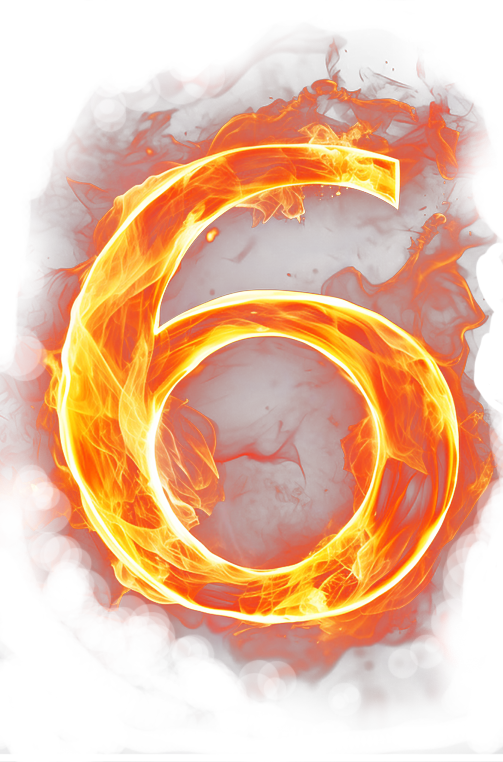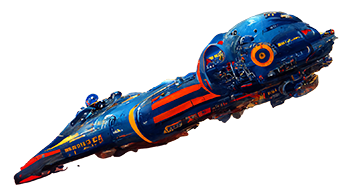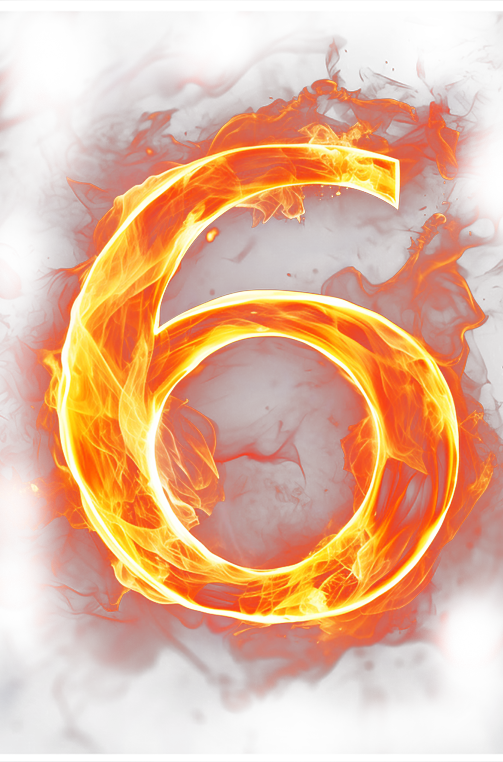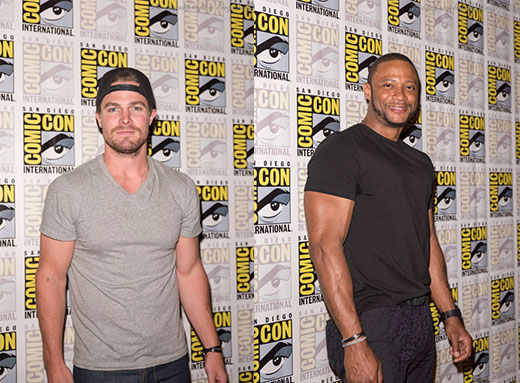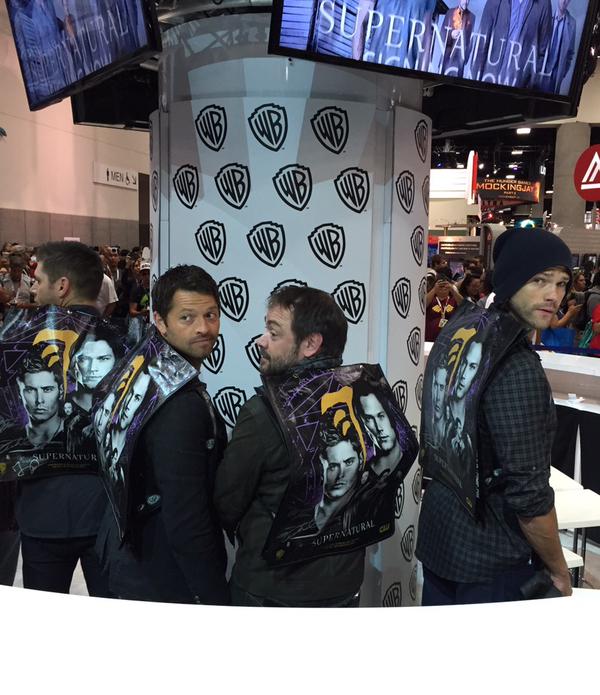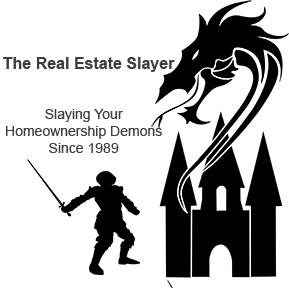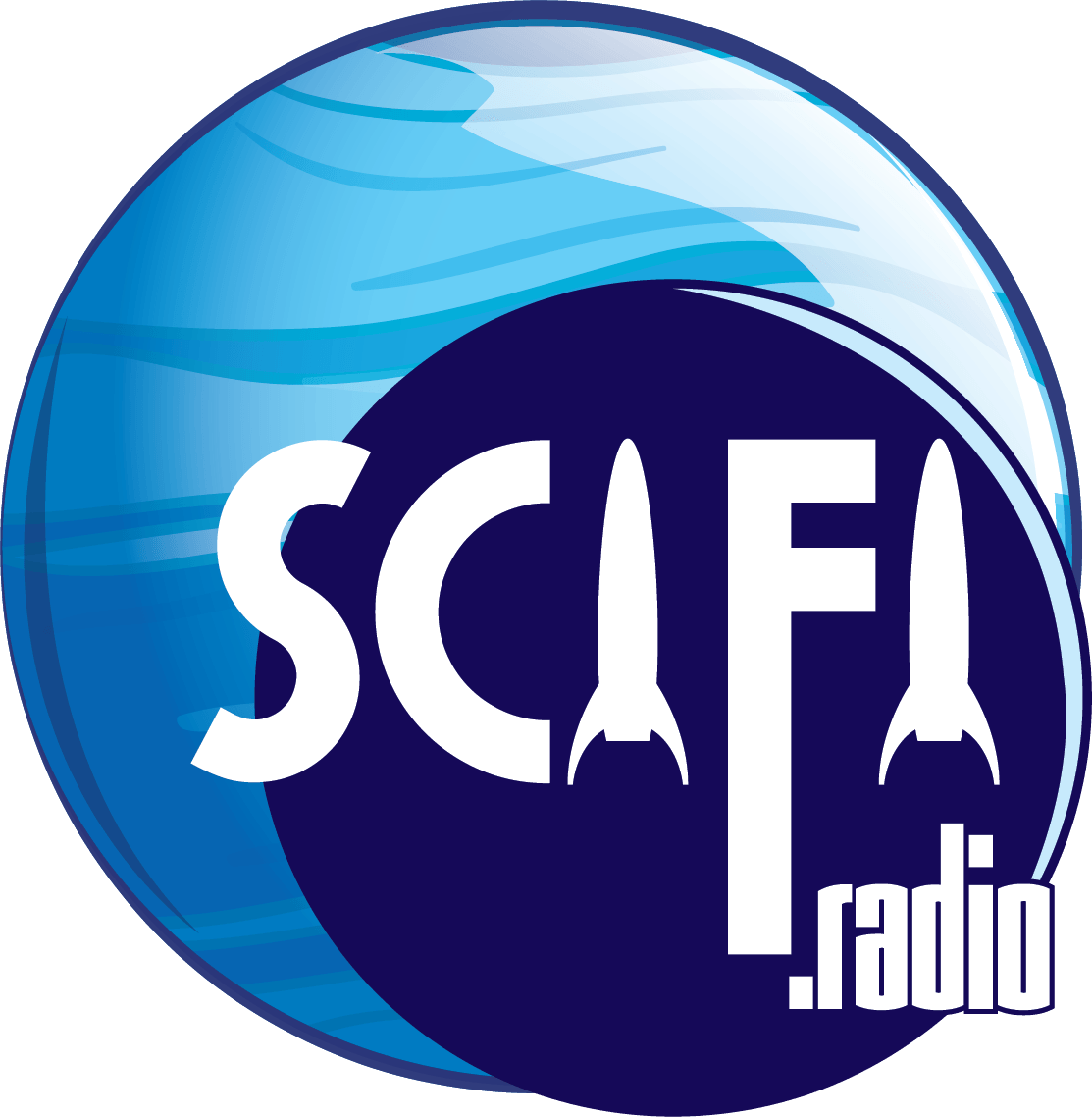Whedonopolis: What, in your own words, can you say about Doctor Horrible without giving away too much of the plot?
Felicia Day: Well, it’s about kind of a low-rent supervillain who is in love with a girl and it turns into a love triangle with his arch nemesis…
W: (laughing)
FD: …so that’s as loose as I can make it.
W: That sounds fantastic.
FD: It’s in a musical form, so it’s definitely unique thing that anybody will have ever seen because it’s a combination of five different genre’s in a forty-three minute package.
W: So, that’s about the length of one full episode of television.
FD: Yeah, I guess I didn’t think about it that way, but you could air it as an hour of TV. That’d be cool. But let’s stay with the internet for now.
W: So, how did you get the role?
FD: I was on the strike line, and I went out and struck because I’m a real protestor at heart. I like to protest things. So, I went to Fox and saw Joss, and he actually had a Mutant Enemy day that he invited me to, and a lot of other Buffy and Angel Jossites. So we were walking and talking and protesting, he floated this idea, and he was like, "Yeah, I really wanna do this internet thing with a low-rent supervillain musical."
And I said, "What? That sounds bizarre," and then I said, "Well, just go do it, because I did it with my show, you know," And he had already been planning it, but he did say that watching The Guild and how I sort of just made it and put it out there was very inspiring to him in actually getting things made. One of many, many things, I’m sure, because he already had it in the works. So, like, three months later, he sends me an email out of the blue, "Can you sing? J." And I was like, "This is a very bizarre question, I said ‘Yes…’"
W: (laughing)
FD: So that’s how I came on board, he just called me up and said come on board. And nobody says no to Joss.
W: Did you know you’d be working with Neil Patrick Harris or Nathan Fillion?
FD: I think he might’ve mentioned it when I called him finally on the phone. He said Nathan is doing it, and Neil is doing it. And I said "Whoa. Okay, Neil’s a great singer, are you sure that you want me to come sing for you?" And he said, "Nope, I know you can," because I sent him a link when I did One Springs and my mom trained me in all sorts of areas…
W: Is your mom a singer?
FD: No, she’s not a singer, but she wanted me to be a singer and good at lots of things.
W: Well that seems to have worked out. So, what was it like working with the two of them, Nathan and Neil?
FD: It was just amazing. It was really intimidating because these are guys that work all the time and they’re just consummate professionals. Especially Neil, he’s been acting since he’s a tiny kid, and he’s so good! He’s just, like, so professional. When we were at the screening the other day, I was watching the screen and I was like, "Wow, Neil doesn’t waste a moment on camera." There’s always like four layers of things going on when he’s acting, and it was really inspiring, and I feel like I learned a lot from him.
And Nathan, he can do everything. He’s been on a sitcom, he’s been on daytime TV. He’s been on so many different kinds of shows, so he’s good at everything.
W: It sounds like it was really interesting. So, have you heard, based on the success of this, of any plans for a sequel or anything else?
FD: Joss said he wanted to do a sequel. The other day at the press thing, he said he wanted to do a sequel. He’s bandied it about, and he said there wasn’t any definite plan, they’re just floating the idea. But, he said that’s how the first one got started.
W: So, would you be on board with that?
FD: If they wanted me to be in it, I would be Kraft Service. (laughing)
W: ((laughing) Well, that’s awesome. Can you tell me about some experiences while filming Doctor Horrible? Good or bad, without giving anything away?
FD: It was really a crazy whirlwind experience because it was very low budget, and I know how to work low budget, that’s what I mostly do. Especially on my show, but comparatively it was like, "Wow, there’s thirty crewmembers and we have four." That aspect didn’t aspect startle me as much as much as having real equipment. That was kind of weird. But, then the pace that they moved was just like The Guild. I can’t believe we got everything done in that time. It was crazy.
W: How long did it take to film the whole thing?
FD: I think it was four days. It was a crazy schedule, for stunts and musical, and all the filming on location. And you know, it was filmed on the part of Universal that burned down.
W: Oh really?
FD: Yeah, the first episode is shot on that lot that burned down.
W: Wow, that must’ve been strange.
FD: Yeah, it was strange when I was watching the thing and said, "Oh, that’s where we shot Doctor Horrible!" And I know that Joss had a lot of fan support and don’t know how he pulled strings to film on the lot on that kind of budget, but he obviously has fans everywhere.
W: So, do you think if this is successful that it can usher in a new future for televised content or more online content?
FD: Well, what is relatively successful? I think to get the eye of Hollywood people it has to be hugely successful in a financial way. I mean, the bottom line is Hollywood is all about money. I mean, some people care, like the creators care, but like the bottom line of hype and attention is dollar signs. But, I think at the same time, I think it’s a cool way to do something because as a creator he has complete control over his product, and he didn’t have people giving him notes on the set.
W: Oh really?
FD: No, because it was him and Maurissa and Jed, and that’s my opinion of how Hollywood is now. It’s like the more unified a mission you can have, the better the product. The problem with Hollywood is that there’s so many people that interfere. There’s so many layers of bureaucracy of making something that I don’t know if you could create that way.
W: Oh, I didn’t know that. I didn’t know about all these levels of bureaucracy.
FD: Oh yeah! You get every single scenario. Every writer will tell you, you go in with something where the son dies and they’re like, "could it be a dog?" I mean basically deciding that they want to change the whole story, and they’re paying the bills, so you’ve got to tailor it, and at the end of the day you’re so far away from where your original vision was, it’s like why bother doing this?
W: That must be kind of…disheartening. Okay, this will be the last question about Doctor Horrible because I don’t want to ask too much and give anything away.
FD: It’s kinda hard because it’s a musical, so the plot is simple, but it’s all about the performances and the music and the stunts. It’s just great.
W: We’re all very excited to see it. I guess my last question about Doctor Horrible is, what was your favorite experience while filing Doctor Horrible?
FD: I guess my favorite thing is, there was a kid…you know that film Soldier Boy?
W: Yeah.
FD: There was an extra who taught all of us how to do the dance in the parking lot outside a laundrymat. I think that was like the funniest, weirdest thing.
W: That sounds adorably hilarious.
FD: IIt was hilarious, and I think I have some pictures, actually. So, all of us, Neil, Nathan and Joss, Marissa and Jed. We were all outside doing the Soldier Boy dance with this extra.
W: That’s awesome!
FD: And I don’t think that would happen on a big-time set. It was very much like freeform, creativity, like, brilliant people in charge of the set having the most fun ever, and people like me going along with it. It was just really fun.
W: I guess that brings another question to my mind. What was the difference between filming something like this and filming something like Buffy or House? I mean, was there a different feel on the set?
FD: Oh yeah, yeah. You know sometimes when you go to a set – I mean not with Buffy or House because those are great sets – but sometimes you show up on a set and you feel like everyone is just showing up and pumping gas, and they’re just doing they’re job and nobody is really invested. It’s just a punch the clock type of job. The extraordinary thing about Doctor Horrible is that it really was people in a playground in a sense, just with lots of fancy equipment. It was creating something with a sense of joy and freedom, I think, and I think that’s why it’s so good is that you can see that with everything. Everyone was donating their time toward creating a great product.
W: It sounds like a very inspirational experience, actually.
FD: It was, I mean it was for me. Doing my own thing for so long, it was so great to see. My whole thing is that I want people, if they have something they dream about doing, you shouldn’t hesitate to try to go after that, and think that a lot of times we get in our own way. I know I did in writing and creating and doing things because you think it’s a lot more intimidating than it is, and at the end of the day you only have one life, and you have to do with it what you feel is the most fulfilling. I mean, why not try something and be willing to fail? I think when you try with that much heart and enthusiasm, it’s can’t help but be good. So, I think it’s going to be awesome.
W: I don’t think anyone has any doubts. So to segue, what do you think you took away from Doctor Horrible that you might use on The Guild in the future?
FD: Well, I feel like a lot of people have these theories that online content has to be really short, and I disagree with that because I think if it’s good, you don’t notice how long something is. So, I guess I would say that you just have to be confident in your story and the story you want to tell and not worry about the external. Like, will the fans like this, or will my mom like this, will video game players like this? You have to make for you and you have to make it sincere. Don’t shut anybody else’s opinion out, but at the end of the day you really have to go with your instincts and you have to create what’s unique to you. We all are unique and our perspectives are unique, and unless you’re telling your own tale, you’re kind of betraying yourself in a sense.
So as far as The Guild goes, I’m trying to make the episodes more complicated, like add an A and a B story. Because we kind of did a little bit on the fly, and I’m writing a whole season and I’m trying to shoot the whole season together and try to have them roll out faster in order to build the momentum of the story. I’m in the middle of a second rewrite, and it’s going to be a little bit longer than the previous season.
W: Longer episodes or a longer season in terms of more episodes?
FD: The episodes will try to average around five or six minutes, which is on the longer side for the season. But I feel those are the most satisfying story arcs, and had enough in them. It just needs to be good, I don’t think the length really matters, it just needs to be packed with stuff. And then just release them all at once.
Also, Joss is very smart. I think the fact that he didn’t hire a professional PR person, he put the project in the hands of the fans, and it’s so much more inspiring and valuable then just hiring some fancy person to call the important people. Once everyone else who is regular gets excited about something, then those guys will say, "Oh, I need to pay attention to that." So it’s really cool to go in reverse from the middle up rather than start from the top and try to shove things down people’s throats. Like when they market a really bad movie, you think, "Oh, that looks horrible," but they throw so much money at it, rather than taking to account fans and how the fans can make something happen. So, I’m excited to see what happens next week, it’ll be really interesting.
W: That’s awesome! So is the DVD for The Guild already done?
FD: Yes, but putting it together is much harder than you would imagine. So, we blindly went in, not knowing there are a million and a half steps that are all so involved. I mean, the cool thing about web production is that you have to do a little bit of everything within the context of the job. You have to learn a little bit about everything, but you never know anything expertly well. It makes you appreciate all the little pieces and people’s expertise along the way. Because yeah, I could do the DVD myself, and it would look REALLY BAD, or I could do the DVD cover myself, and it would be…not good.
So, we are very excited to approve the final
DVD. We put a lot of work into making extras worth it and making it look professional, and I was just really excited to see it. It was a really proud moment to see that DVD cover, because it’s free on the internet, so what’s the incentive to buy something? We really tried to make it as good as we could on our budget and our means, so we have lots of extras…
W: I was going to ask about that. What sort of extras can we expect?
FD: We have two gag reels from different parts of the season that aren’t on the Internet. We have a twenty minute cast interview with the whole cast on how they got aboard. It’s really well put together; my producer edited it. We have cast commentary and director commentary tracks, and most of the time we’re all commentating on all the tracks, so it was really fun. It’s like random, I don’t know how informative it is, but it’s really funny. Jeff Lewis (Vork) is so funny. The director and producer commentary track will be more edifying if you’re on the technical side.
And then, it was one of my goals to put professional subtitling put on, and it was so difficult to arrange with our budget. Because, you know, it’s a very specialized skill and I didn’t know that. We found a company here in LA to do it and it looks so good. They’re very clear, they’re white and outlined in black on all the episodes. Just to see those on there, I know how much it took to put them on there, and I’m so proud of it. Not only to make it accessible to hard of hearing individuals, but also for our international fans, because we had so many requests for it. So that’s pretty cool. I’m really proud of it. It was kind of my spearhead. We were almost going to do without it, but I said we have to have subtitles.
The sound quality and picture quality is much better than you see on YouTube, and there are script PDF’s on there. The menu pages look really pretty, which is really important. We hired someone to do it, my producer’s neighbor. He did it for very low budget, so thank you very much John.
W: So how did The Guild get started? What was your inspiration?
FD: I wrote The Guild because I had just come off a bad two year World of Warcraft addiction, and at the same time I wasn’t doing really well acting-wise, but I was getting really close to, you know, testing for shows and not getting them. So, I got a little frustrated and I was like "I need to do something a little more fulfilling with my down time rather than just wait for a job to drop in my lap" like actors do. So I sat down to write a half-hour pilot because I love comedy, and I love to make people laugh. And I thought, "What is the best venue I know to write something about?" and obviously online gaming came to mind, because you know if you play online games, you know there’s a lot more that happens there than people imagine.
So I wrote it as a half-hour pilot, and I sent it around. People thought it was funny, but they didn’t understand a lot of it and they said it’s too niche. My producing partner, Kim Evey, had just had a viral success with her Gorgeous Tiny Chicken Machine Show. Like, two million hits on her parody of a Japanese morning show. She read the script and said, "You should take this on the Internet, because that’s where the fans will be." I thought that was really smart, and I had never made anything at the time. I thought making a film would be so intimidating, it’s so hard unless you have a knowledge base of the area. If you decide to do it, then you can make film no matter what, it just depends on how good it’s going to come out.
W: What inspired you to create the different characters?
FD: Codex, my character, I created because I thought, "What is a character that I can play best? What will I have the most fun comedically? What will show me off and allow me to be a lead while retain what I am? " Because I’m a quirky girl and Hollywood does not like quirky ladies as much, and if they do they’re always the sidekick, and you don’t get into the psychology of that person, so I decided I was putting on a show for myself and I thought this is a character I could play and have fun with. It’s more of the straight man character, but at the same time she has her own psychosis or psychology problems.
Then, for Vork and Zaboo, I knew Sandeep and Jeff through improv. I’d been doing improv with them for years, and I always knew they made me laugh and I’d have to make a part for them. So I sat down and listed all the different kinds of people I’d interacted with on the Internet. I’ve been on the Internet since I was 10. I was home schooled and I moved around a lot. So that’s how I had friends, my friends were online, so I had a rich sampling of people to draw upon. I just paired them up with what kind of character Sandeep and Jeff would be that would be really, really funny.
Then, the other three were just like the most diverse archetype, because the cool thing about online gaming is that people from different backgrounds and different ages, they’re contemporaries and I think that’s a better way to look at life, rather than judging people by the way they look. The last three parts, we had an open-call in. My friend Helen Geier is a casting director for Bones and Shark and I think she’s on Dexter now, so she helped me cast the three remaining characters.
W: I know your characters are your babies, but which one makes you laugh the most?
FD: I have to say that Jeff Lewis (Vork) could make me laugh on a regular basis more than any other individual, so I say his cheese monologue is my favorite thing I’ve ever written, and they way he delivered it was like, you couldn’t ask for anything better. He makes me laugh a lot.
W: Were you surprised by The Guild’s success? It kind of just took off, which was fabulous to see.
FD: It did take off, but it was a lot of work. A lot of people make web video and you think you put it on the internet and it’s just successful. And even though I had the Buffy fanbase behind me and the gaming fanbase behind me, it takes a lot of effort to get something to rise to the top of the Internet. We have millions of people we haven’t tapped who play online games who haven’t watched the show. There’s always more people to be reaching, and it’s just hard because the Internet is huge.
I just had blind faith and sometimes you hit this thing where you’re like, "This is undeniable. You need to love my show." It’s sort of like this blind arrogance that I had, a blind need to share this with people. It’s not arrogance, I have a need to share this and educate people and make people love these characters as much as I do. I think that goes a long way, because I do everything personally in terms of talking to bloggers and press, and linking. If somebody embeds my show I usually find a trackback and I thank them, because that’s time they took out of their day to promote my show or say they like it. I don’t have enough hours in the day as it is, but if I can at least maintain that a little bit because it’s important to me, and I think the fans really made the show.
W: What do you think about the parallels between the character’s accomplishments in game and real life?
FD: I think in every story, a character grows. There’s an automatic pa
rallel, so any story I do in their universe is going to be a parody in the game because you’re skilling up.
W: (laughing) Yeah, you’re grinding…
FD: (laughing) Yeah, you’re either grinding or you’re skilling up in life. Everything you do is making you grow and changing who you are as a person. That’s why people who love video games love them so much because it is a satisfying parallel to life. You feel you’ve accomplished something when you have a kick-ass outfit.
W: So when do you think season 2 might start airing?
FD: My goal is to shoot sometime in August. I don’t want the Fall to go by without a new season, and also we need to shoot them all at once because we’ve been rolling them out once a month, and that was cool. Now I feel we need to double that schedule, one episode every two weeks at least, so that requires more financing up front, just to be able to shoot everything at once. It adds up, because nobody has made any money. We were hoping to back pay people with the DVD like Joss is doing, and we got great donations and paid the actors for two episodes. Other than that, only the base crew has gotten paid. I’ve gotten no money from my show.
W: Wow, that’s a labor of love.
FD: It is! I mean I work on the show five hours a day, and it’s my day job. I was telling my boyfriend I need to hire an assistant for all the free work I’m doing. (laughing) But, you know hopefully with the DVD we’ll be able to pay people a wage to have them show up, and I’ll be able to not be as worried about my utility bills. (laughing) That’ll be exciting. So, the DVD is exciting for that, and hopefully for the next season there’ll be funding so everybody will get paid a little bit.
W: So, moving on from that topic, recently you said you worked on House.
FD: Yeah, I got a job on House. I worked as like the longest guest star available. It was over Memorial Day, so it was like, two weeks. Even the regulars were like, "Are you still here?" In a nice way because everybody on that set is so nice, and Hugh Laurie is so yummy, he’s very yummy. He’s amazing, and very charismatic, and such a kind gentlemen and so good at what he does. All the people I’ve ever worked with in my life, I’ve learned from, and it’s always the ones are the best at what they do who are the most humble. It’s just true.
W: Is there anything else you’re doing?
FD: I actually have another writing project I’m working on and I can’t say what it is. It’s another web project, and I think it’s a really cool idea, and I just happened to find a company that wanted to do it. It’s nice to be able to write two things at once because when you get stuck on something, you go back and forth, so I’m having fun going back and forth. Hopefully I’ll be able to announce exactly what that is soon. I’m doing a Citibank commercial next week.
Commercials are the best thing ever. Some people are snotty about doing commercials, but I’ve been a very lucky actor in that I’ve done some really awesome commercials. Things that I’ll look back on and be like, "I’m really proud I was able to do that." You know, very stylized, very visionary and very funny. Some actors are embarrassed about that, but you get to work with some amazing directors people, and it’s a fun format to work in because it’s very quick.
Also, the commercial directors are known for their style, so you learn so much about the crazy things they do. Like for this Cheeto’s commercial they had this crazy puppet, that was like hairy, he was a hairy Cheeto’s guy that was freakish, and they had like, four people handling that puppet.
So it was cool because I don’t work on big budget movies, so you get to see the technical stuff that you don’t get exposed to normally when you work on a commercial. And I’ve been fortunate because I get hired for really funny commercials.
W: So besides writing and gaming, what are some of your other passions?
FD: I really like web design. I mean I’m not very good at it, but I like to tinker around with my WordPress install. I actually broke it before I came here, so I my site is down. But luckily I have an IM buddy, Edgar, who helps me fix things that I break, and he helps me with The Guild website. I’m a real geek, and I like gadgets. I just got an iPhone and I’m completely obsessed with it. I’ve got to put a Howard Jones ring tone on it immediately. I love reading. I guess my third passion would be reading, my fantasy novels.
I’m not really a comic person, I don’t enjoy them because I don’t know them. I think the cool thing about going to Comic-Con and being there the whole time – because I’m going to be in the Browncoat booth two hours every day signing the DVD and the Doctor Horrible thing is going to be an all day thing with the panel and the screening – I’m going to use it as an opportunity to learn about comics. I’ve tried, but I love books, like a thousand page paperback with twelve sequels. One day my goal is, if I ever retire from Hollywood, that would definitely be my second career.
W: Yeah, that’s something you can do forever.
FD: Yup, so yeah, ten years, once my face starts sagging…
W: Ouch, that’s so sad, but true probably.
FD: Well, not sad. That’s one of the reasons I started writing because, as a girl, you have a shelf life to "make it. " And even when you’ve made it, as a woman you get older and there are fewer and fewer roles there for you to play, and after empowering myself and making my own show, I’m not really interested in begging for roles anymore. Even now, when I go to auditions I’m like, "God, I have something else to do right now."
W: Going back a bit further, what inspired you to be an actress?
FD: Like I said, I was home schooled, and the only thing that held my childhood together was the Internet and musical theater. Wherever I moved I did musical theater production, and it was where my heart was. I went to college and got a math degree and a music degree, and then I just knew I was going to move to Hollywood and become a huge star, like literally off the boat.
W: That’s what everyone thinks when they come here, right?
FD: I think you have to, because if you knew the odds against you, you probably wouldn’t come. So you have to have that blind faith in yourself, and I think that you get tired and you do other things. You realize "oh, okay, this is how this business works," and unless you hit it really big early on, you start to fulfill your days with other things like writing. So, it’s great to be able to do both at the same time now. I do love acting and making people laugh, primarily. Comedy is where my heart lies, so I love doing improv, so no matter what I’m doing I always make time to do improv.
W: So what would you say was your first big break?
FD: Buffy was definitely my big break. Before that I’d done guest stars and co-stars and commercials, but Buffy was my first ongoing role.
W: What was it like working on Buffy?
FD: It was amazing, having a job where I got to go in to work every day and act. It was so great, and the set, even at the end, was so much fun. People loved what they were doing. Not only were you showing up to work to act, you’re showing up to stab people and fly on wires…
W: (laughing)
FD: Honestly, I would love to be able to fly on a wire again. It was so much fun. I love Kung Fu movies, so if I could just kick somebody’s ass in a movie soon, I would just be happy.
W: So fighting was the most fun part? Kicking people’s ass?
FD: Oh yeah, fighting and stuff, and learning the fight choreography, that’s great. I mean I took a lot of dancing and a little bit of martial arts. I really need to go back and take Kung Fu and make myself a role, because no one is going to hire me to do it, so I got to figure out, "How would I kick people’s ass well?"
W: So what would you say was your favorite professional moment, either acting or writing or whatever?
FD: I think having the show on the front of YouTube was the biggest thrill. I was on the set of Prairie Fever, this movie I was doing with Kevin Sorbo, and I opened my voicemail and there were eighteen voice messages. They were random people I hadn’t talked to forever saying "Hey, you’re on the front page of YouTube," because my still was featured. I don’t think I’ve ever been more excited because it was my show and my face and I made it happen with a huge crew. We made something from nothing and it was on the front page of YouTube. It was one of the biggest thrills.
FD: That’s awesome. I guess my last question is, do you have any inspiration you can share with other actors or writers to help them?
W: There’s a great book called, "If You Want to Write," by Brenda Ueland and that’s an inspirational book for me. She sort of says unless you’re writing, you’re not existing, in a sense. Her parallel was not just writing, it was doing whatever it is you can do to express your uniqueness. I think it’s a cool idea that every single person on this planet is different, has a different experience growing up and a different point of view and unless you’re creating something and expressing that individuality in whatever it is that you love, you’re selling yourself short in the end.
So, I would just say that, when you’re creating something, just make sure that you’re doing it for yourself and not to please other people. So, look inside yourself and say, "What is it that I uniquely have to say about this," whatever your passion is, wood carving, writing or acting, do it for yourself and don’t do it for some nebulous hole of recognition or fame or respect. If you really do something that’s reflective of your heart, then people will find it and they’ll see that genuineness about it, and they’ll be moved, and the rest will follow.
W: That’s very good. Thank you very much for coming today.
